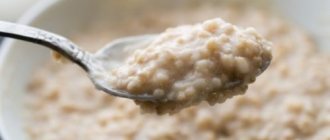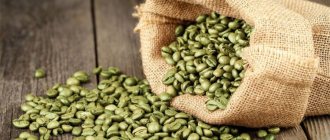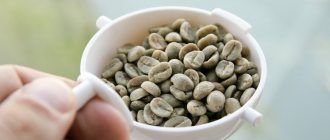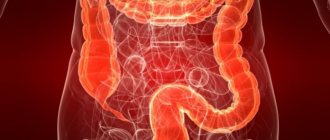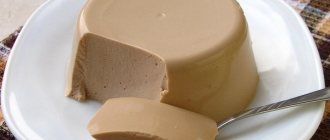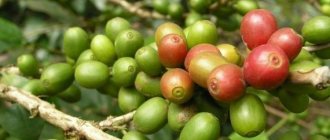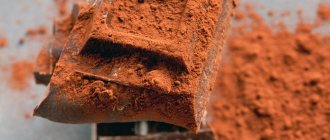The role of tea and water for the human body
The most important substance on earth is water. No water - no life . According to scientific research, when the level of fluid in the body decreases by 3-5% , the general condition worsens, drowsiness and nausea appear. With a loss of 6-10% , thinking and attention suffer, headaches and muscle spasms appear. If the water level drops by 11-19% , then vision and hearing are lost, and there is a risk of cerebral ischemia and thrombus formation. Loss of 20-25% of fluid leads to a complete stop of the body’s vital functions.
A liquid with a calorie content above zero is food. The calorie content of water is 0. The energy value of tea is 1 cal./100 g . Therefore, tea is food and that is how it is perceived by the body.
Drinking tea and water has a beneficial effect on human health . The main thing is to pay close attention to their quality . Tea should be chosen without flavoring additives or aromas. Purified water, preferably spring or melt water. Mineral water should be taken in small doses, like medicine. Otherwise, instead of benefit, you can get kidney stones.
Why is tea not considered water?
@Alexander Lunin, Conclusion: my statement that pure (distilled) water is not prohibited for long-term use is confirmed by the current SanPiN 2.1.4.1074-01 and SanPiN 2.1.5.980-00, as well as the previous SanPiN 2.1.4.559-96, SanPiN No. 4630 -88, GOST 2874-82 allow total mineralization from 0 (distilled water) to 1000 mg/l. WHO “Guidelines for drinking water quality, 4th ed. 2021 does not believe that we get useful substances from drinking water, it believes that we get them from food. I also argued that the presence of minerals (chemical pollutants) in drinking water is dangerous for us, the total amount of which is limited to no more than 1000 mg/l (in the USA no more than 500 mg/l), and each substance is limited by its own maximum permissible concentration. You have reached a dead end. I can understand a person who adds a couple of tablespoons of mineral water per day to pure (distilled) water. First: your total monthly mineral consumption will be at the same level as tap water, but without many of the harmful substances. Mineral waters are different and you can alternate or get a doctor’s recommendation, after taking tests, use microdoses of pure water with different minerals (calcium, iodine, iron, magnesium, phosphorus, sodium...). There is plenty to choose from: “For bottling mineral waters in the countries of the former USSR, about 180 mineral springs are used with a production of over 1 billion bottles per year (over 3,500 mineral springs and wells are known on the territory of the republics of the former Soviet Union).” In addition, acidity is different for everyone. Some people need a lower pH, others higher. This is easy to achieve with clean water. In any case, there will be less harm. Why so stubbornly “drown” for tap water with its harmful substances: “Hygienic standards for the content of harmful substances in drinking water Appendix 2 (mandatory) to SanPiN 2.1.4.1074-01.” Did you understand? 60 liters of clean (distilled) water + 0.5-1 liter of mineral water per month per person will be better than 60 liters of raw tap water. In your case, you should only drink tap water that is raw, because Ca, Mg... precipitate when boiled. Grow up! Think! Last thing. Why do I try to stop people like you from spreading ignorance? Because you don’t let people understand that with drinking water we get water (H2O), there are almost no useful substances there, but there are plenty of harmful ones. There is no such thing as balanced water. All drinking water is different. There are no standards for the presence of minerals in drinking water. There are only restrictions (no more than MPC). When people understand this, they begin to correctly relate to the main source of proteins, fats, carbohydrates, vitamins, macro-micro-ultra-microelements - NUTRITION. With food we get all the necessary nutrients. Clean water, nutrition, air purifiers and humidifiers, along with medicine, increase healthy life expectancy. Something like this…
Benefits of water
Water is the source of life. It does not contain any calories. A lack of fluid in the body is called dehydration . Let's consider what functions water performs in the human body and why it is so useful:
- Transporting nutrients to all cells of the human body.
- Normalization of metabolic processes.
- Removal of toxins and waste . Water dissolves organic and inorganic substances in the body, so the cleansing process is impossible without it. For example, water removes cholesterol from the blood.
- Brain stimulation . One of the causes of migraines may be water deficiency.
- Increasing the elasticity of cartilage and blood vessels . Cartilage tissue is 85% liquid, so maintaining elasticity directly depends on water consumption.
- Ensuring proper thermoregulation : prevents overheating or hypothermia.
- Normalization of digestion.
- Boosting immunity.
- Promotes weight loss . If you drink a glass of water before eating, your stomach will prepare for work and the amount of food needed to satisfy your hunger will be reduced. Your stomach will be ¼ full, so your appetite and the amount of food needed to satiate will decrease. For those who want to lose weight, it is recommended to replace drinks with water. This is logical, because it does not contain calories or chemical additives.
- Normalizes blood pressure . Water thins the blood, thereby lowering blood pressure.
- Improves the condition of skin, hair and nails . Human skin is an excretory organ that regulates body temperature. With insufficient water intake, the skin becomes dry, which contributes to the appearance of wrinkles.
- Increases endurance during physical activity . When playing sports, it is important to replenish your fluid supply to avoid muscle cramps and injury.
- Reduces the harm of alcohol . Drink alcoholic drinks with water, this will reduce the damage done and also prevent dehydration.
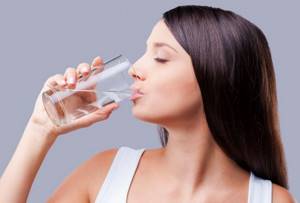
Increase guaranteed!
Not all drinks have the ability to “trigger” metabolism. Many of them, on the contrary, promise weight gain. Moreover, liquid calories are much more insidious than “solid” ones.
If the body spends about 10% of the energy received on the absorption of solid food, liquid calories are absorbed instantly, without energy expenditure. In addition, food is processed slowly and lingers in the stomach for some time, creating a feeling of fullness; the feeling of fullness after drinking drinks passes very quickly.
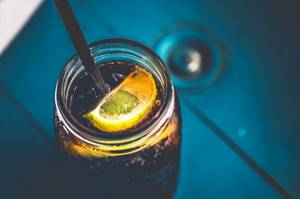
“It doesn’t quench thirst, but provokes it.” Experts on why soda is harmful Read more
Beneficial properties of tea
Tea has a general healing effect on the human body. It contains many vitamins and microelements and has a preventive effect against various diseases. Most useful for middle-aged and elderly people.
Tea has the following beneficial properties:
- of trace elements necessary for the human body : iodine, calcium, phosphorus, fluorine, copper and manganese.
- Strengthening the walls of blood vessels and increasing their elasticity, stimulating blood circulation. This is facilitated by the vitamin P contained in tea.
- Boosting immunity and fighting viruses and infections. This happens due to the high content of vitamin C.
- Improvement of liver function and normalization of blood clotting thanks to vitamin K.
- Regulation of blood sugar levels under the influence of catechins.
- Reduces the likelihood of caries and periodontal disease . Eliminates bad breath.
- Tones and replenishes strength.
- Used as an adjuvant for poisoning, dysbacteriosis, colitis and other diseases.
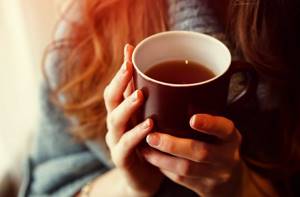
Remember that adding sugar and substitutes, milk or cream to it increases the calorie content and the presence of harmful substances.
Potential harm of the drink
Green tea for weight loss
The product has not only pros, but also cons, and this should be taken into account when using tea. Harm may occur if you do not follow the advice on drinking the drink, use it in large quantities, and also do not take into account contraindications. When there is an excess of caffeine in the body, the heart rhythm is disturbed, and the gastrointestinal tract also malfunctions. The composition contains amino acids that have an irritating effect on the walls of the stomach. The leaves contain many essential oils, their high concentration negatively affects internal organs.
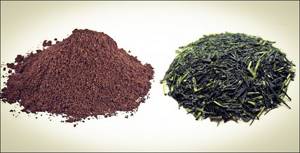
Green tea contains caffeine
To avoid negative effects, you should know how much to drink per day. Nutritionists and gastroenterologists recommend stopping at 3 cups.
For your information! In ancient times, the product was used only to treat diseases, but after several hundred years it began to be used to quench thirst. In China, it is common to mix green teas with ginseng root to create a longevity drink.
Contraindications
There are no contraindications for drinking water . Despite the existence of a daily norm, you do not need to force yourself to drink a certain amount. Don't overload your kidneys. Drink as much as your body requires. A feeling of thirst will tell you about a lack of fluid.
Tea has contraindications, so some people need to use it with caution:
- Pregnant women . Caffeine can negatively affect a child's development. The possibility of toxicosis increases.
- For stomach diseases . Patients with stomach and duodenal ulcers and high acidity are advised to refrain from drinking tea.
- For diseases of hypertension and atherosclerosis . Theophylline and caffeine contained in tea stimulate the central nervous system, and brain vessels constrict. This can cause blood clots to form.
- For insomnia . The ban is associated with the stimulating effect of caffeine.
- At elevated temperatures . Theophylline reduces the effectiveness of antipyretics due to its diuretic effect. Hot tea additionally warms the body.
Tea should be drunk in moderation . Excessive consumption puts a strain on the kidneys, cardiovascular and nervous systems, causes insomnia and frequent urination. On average, the norm for a person is 3-5 cups of tea during the day. Children can be given no more than 2-3 cups of weakly brewed drink per day.
What is healthier tea, coffee, cocoa or water: new research by scientists
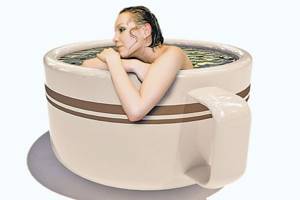
Two liters of water per day is a myth that does not want to die.
Photo: PHOTOXPRESS
“The best drink for longevity is coffee!” - some experts say. “No, those who drink green tea live longer,” others insist. “Black tea will contain more useful substances,” still others open their eyes. And then there is cocoa, which was recently announced as the only natural drink containing valuable vitamin D. And, finally, pure water, which anti-aging experts advise drinking in liters... How to navigate the sea of research and recommendations? To compare scientific and medical data and find out which drink will be healthier in terms of longevity, we invited an expert in applied biomedical technologies and anti-aging medicine, researcher, Vice President of the Science for Life Extension Foundation Yuri Deigin.
Against cancer and dementia
“The majority of research around the world is now devoted to two liquids: coffee and alcohol,” says the expert. — Alcohol is out of favor today. Recent studies have not confirmed the prevailing and very popular belief that alcohol can help prolong life. At best, we are talking about the fact that in small doses the harm will be insignificant (for details on how much you can drink so that there is no serious harm, see the website kp.ru in the “Health” section).
But coffee is another matter. Over the past 5 years, a large amount of data has emerged. They show that coffee drinkers have lower mortality overall and fewer deaths after cardiovascular accidents. The risks of developing Alzheimer's and Parkinson's diseases are also reduced, depression is less common, and the incidence of certain types of cancer - liver, oral cavity, leukemia (a type of blood cancer) and melanoma (the most aggressive type of skin cancer) is reduced.
— Yuri, the benefits of coffee for people with high blood pressure and other cardiovascular diseases look doubtful. It is known that hypertensive patients have increased sensitivity to caffeine and can experience dangerous surges in blood pressure.
- Of course, this is worth remembering. Some studies have indeed confirmed the connection between coffee and increased blood pressure. But the best evidence suggests that the drink is generally not harmful to health and helps reduce mortality if consumed wisely. Including - do not drink during pressure surges. And also do not exceed the dose that suits you individually. This is the number of cups after which you feel comfortable, your heart doesn’t pound, and your hands don’t tremble. For most people, this works out to be 2 - 3 cups per day.
HELP "KP"
On average, one cup contains between 80 and 120 mg of caffeine, whether you add milk or not. Instant drinks usually contain less or no caffeine.
Hello from China
“Most of the studies talking about the benefits of tea were carried out, as you might guess, in China,” says Yuri Deigin. — When experts began meta-analysis, that is, they began to review the results of a large number of scientific works, the conclusions turned out to be contradictory. In some places it was possible to prove the benefits of tea for longevity, in others the effect was almost or completely unnoticeable. In general, no offense to tea lovers, there is less evidence of its tangible benefits than coffee.
But you definitely shouldn’t be upset. Because the valuable effects of coffee, although they really exist, are often exaggerated.
“I would say that coffee lovers do not have a huge win, but rather a pleasant bonus,” explains the expert. — The risks of mortality and morbidity are reduced not by several times, but by an average of 6–8%. Roughly speaking, this is plus one or two years of life. Although it is important that the quality of life is likely to be improved by reducing the risks of dementia, depression and cancer.
— At international scientific conferences they often talk about the benefits of green tea. Is black inferior to him?
- It is believed that green has more antioxidants. These are substances that protect our cells from so-called free radicals. But the question of the role of antioxidants remains open today. Scientists are inclined to believe that antioxidants are beneficial in small quantities, but in excessive quantities they increase the risk of cancer and other diseases (however, no exact norms or harm/benefit boundaries have been defined). In any case, you won’t get enough antioxidants from regular green tea without any special dietary supplements.
Liquid Vitamin D
At the end of last year, news broke: scientists have discovered the only natural drink containing valuable vitamin D. Cocoa! In addition, cocoa (like tea, by the way) contains caffeine. And also the substances theobromine and theophylline. They have a beneficial effect on the respiratory system, reducing bronchospasms. And, what is especially important for many of us, they improve mood, slightly improve memory, and also, as a rule, significantly increase concentration. At the same time, cocoa, although invigorating due to caffeine, often gives a milder and longer-lasting effect than coffee.
“You shouldn’t delude yourself about vitamin D,” Yuri Deigin clarifies. - If a person has a deficiency of this vitamin (and in winter most people living in our climate find themselves in this state, say endocrinologists. - Author ), cocoa certainly will not help make up for the deficiency. Vitamin D is contained in very small quantities in this drink. It’s much easier to just buy it at the pharmacy. It’s better to consult a doctor for proper diagnosis and prescription of medications that have been proven to help.
In general, no one denies the pleasant bonuses of cocoa. Just try to put less sugar in your drink, because its excess certainly increases the risk of disease (diabetes, cardiovascular disease, dementia) and shortens life.

Yuri Deigin is a longevity expert. Photo: pcnews.ru
MISCONCEPTION
Two liters of water a day - a myth that does not want to die
“Recommendations to drink 2 or even 5 liters of water a day are a myth that does not want to die,” the expert shrugs. — This myth came from American research in the 40s of the twentieth century. It said: to replenish the balance of water in the body, a person needs to drink 2 liters of fluid per day. But, note, these 2 liters meant all sources of water, including soups, fruits, vegetables, tea, coffee and cocoa. That is, it was purely about replenishing the balance. Subsequently, any attempts to prove scientifically (that is, in the course of objective research. - Author ) that the more a person drinks water, the better his health or the higher his chances of longevity, failed. Surely, our body is excellent at maintaining water balance and regulates this with a natural feeling of thirst. So, if you don’t feel like drinking, there’s definitely no need to force yourself.
— Hollywood stars claim that if you drink more, it will help your skin moisturize and fight wrinkles.
— With age, the water balance, of course, worsens, the skin becomes drier. But, alas, you should not hope that water will smooth out wrinkles. The amount of water you drink does not have a significant effect on the condition of your skin.
Andrei Garazha, an expert in applied biomedical technologies, explained to KP “This ability is largely responsible for hyaluronic acid, which, as we age, ceases to be produced in the required quantity. Drinking water more actively will not increase the production of hyaluronic acid. But excessive fluid intake can put extra strain on the kidneys and cardiovascular system and can even cause heart problems.
INSTEAD OF OUTPUT
To each his own
All of the drinks listed have their advantages. And there is no solid scientific basis to insist that one option or another is incomparably better than the other for our health and longevity. Yes, a little more data has accumulated today in favor of coffee. But more research has been devoted to it. At the same time, do not forget:
— coffee should absolutely not be drunk during periods of high blood pressure, and the rest of the time, hypertensive patients need to be careful and consult their attending cardiologist about the drinking regimen and the permissible strength of coffee;
— coffee is not recommended for gout (joint damage due to the deposition of uric acid salts);
- caffeine can cause premature birth in the 1st and 2nd trimester of pregnancy (but not in the third), and often in women who abuse coffee, that is, drinking more than 2 - 3 cups per day, the fetal weight is lower;
— if a person suffers from thyrotoxicosis, in which the thyroid gland secretes an excessive amount of hormones, and the patient has increased heart rate, excitability, and nervousness, then endocrinologists recommend limiting coffee or generally abstaining from caffeinated drinks.
By the way, recently researchers made a discovery: if you drink decaffeinated coffee, the effect of reducing the risk of Alzheimer's and Parkinson's diseases will still remain. Because it is not caffeine that is responsible for this, but other substances in the coffee drink - phenylindanes.
Well, if you prefer tea, cocoa or plain water, drink to your health! The main thing is to put in less sugar (it would be better to do without it altogether) and not eat mountains of sweets as a snack.
T
Yogi wisdom: “Everything except water is food, and only water is drink”
It is generally accepted that any liquid whose calorie value is above zero is food. The energy value of tea per 100 grams is 1 calorie . This drink is a food product consisting of young leaves of a plant, which are subsequently amenable to complex mechanical processing. The body perceives this liquid as food. Therefore, tea is a “drinkable” food that contains water.
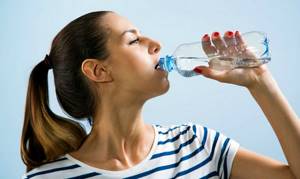
Indeed, drinking tea, like water, has a positive effect on the body as a whole. But, you see, it is worth noting that just as “water differs from water ,” so does “tea differ from tea.” High-quality loose leaf tea cannot be compared to tea bags with fruit flavors and additives. The first option is rich in such well-known beneficial components of tea as antioxidants, which help prolong the youth of the body, fight infectious diseases, and also have a positive effect on the nervous system. The second version of tea affects only the taste buds, and, in general, does not provide any benefit to the body.

Unfortunately, not everyone understands exactly what liquid our body needs and in what quantity . Indeed, fluid is absolutely necessary for our body. With its help, the digestion process improves, harmful substances are removed and, in general, the entire body is cleansed.
Water and tea help quench thirst and are effective aids in the fight against excess weight, since they perfectly suppress appetite and do not have the same calories as other drinks. Drinking high-quality water and tea increases performance and improves heart function and skin condition.
What is water?
So, what is water anyway?
Wikipedia says this: Water (hydrogen oxide) is a binary inorganic compound, chemical formula H2O. A water molecule consists of two hydrogen atoms and one oxygen atom, which are connected by a covalent bond.
But this hardly explains anything in our case. So, what is water?
- Water is the mother of all life! Not a single living creature can live without water!
- Water is life, according to the theory of evolution, all life originated in water!
- Water is the best natural solvent!
- Water is the substance that makes up 70% of humans!
- Water is the substance that occupies the most space on our planet and, at the same time, is the least studied!
Now, I think, it has become a little clearer what water is. WATER is the most important substance for all living things on our planet!
Why does a person drink liquid?
Now let's figure out why a person drinks all sorts of liquids?
Obviously, there is only one answer - thirst! That is, a person needs to periodically replenish the water reserves in his body in order to continue life.
It is also obvious that in ancient times man had no choice and he drank only what nature gave him - that is, WATER. In some areas of the planet, there were other drinks, for example, milk, coconut milk, and various fruit juices. But the basis has always been water; it accounts for 90% of daily liquid consumption!
But you also need to understand that water actively participates in the internal processes of human life. For example, muscles are 70-80% water, which means that without water a person will not be able to gain muscle mass. Skin, cartilage, joints, fat and even bones consist of a certain percentage of water, and mind you, it is water, and not tea or kvass! Therefore, to renew the cells of our tissues, we constantly need pure water.
How much water should you drink?
There is no need to rely only on the feeling of thirst when asking the body how much fluid it needs. Thirst begins to be felt even when the body is dehydrated.
You need to drink enough to restore the consumption of natural fluids. It is better not to drink water with meals or reduce its amount at this moment to one glass. You need to drink in small sips and not wash down your food. And of course, a mug of tea will not be a substitute for water in this case. In general, doctors advise drinking about 2 liters of fluid per day, where 75% of the volume is water.
Source: fb.ru
